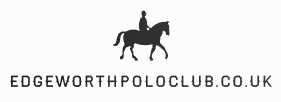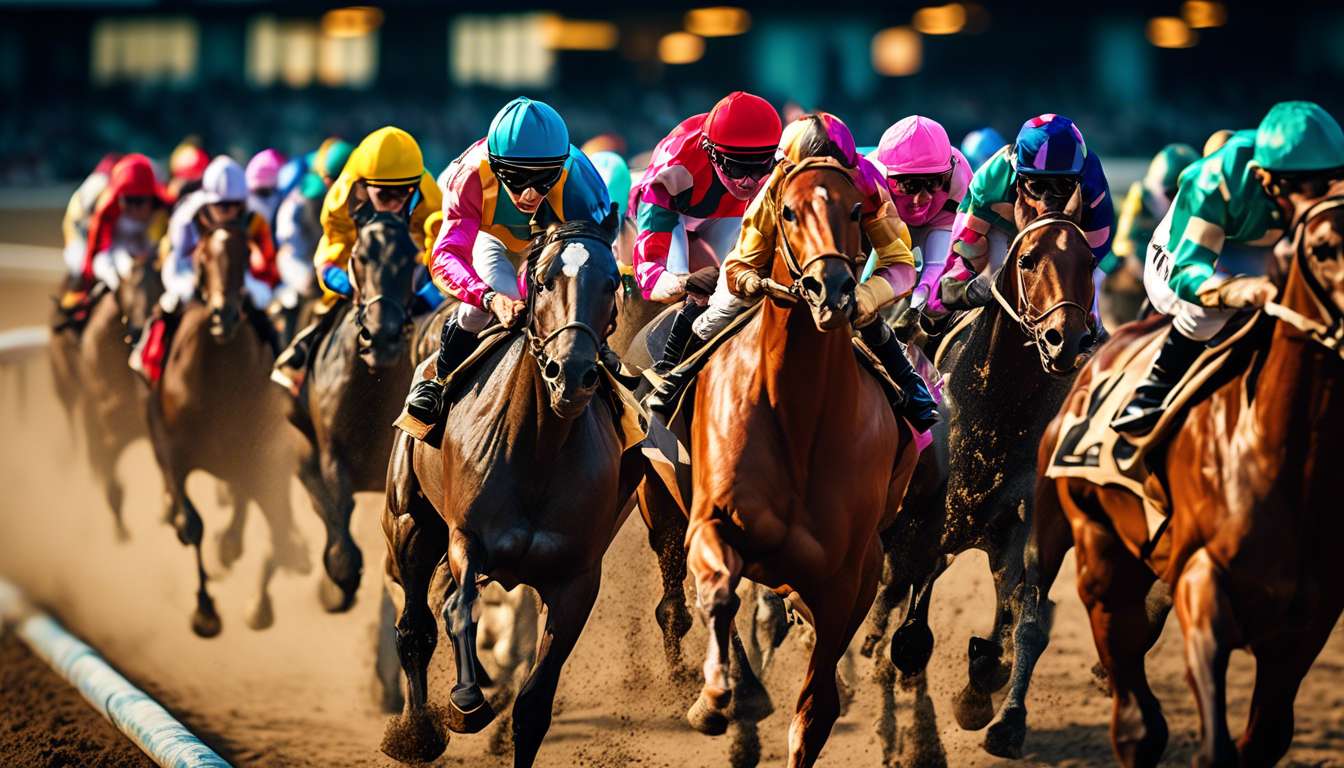As avid enthusiasts of horse racing, we have always been captivated by the thrill of the track, the elegance of the horses, and the anticipation of a well-placed wager. Yet, amidst the excitement, understanding the intricacies of betting odds can often feel like navigating a complex puzzle.
In our collective journey to become smarter bettors, we’ve realized the importance of demystifying these odds to enhance our wagering strategies. Horse racing bet odds are more than just numbers; they are the key to making informed decisions that can significantly impact our betting experiences.
By delving into how odds are calculated, interpreted, and applied, we empower ourselves to make wiser choices that could lead to more rewarding outcomes. Together, we will explore:
-
Different Types of Odds
- Fractional Odds
- Decimal Odds
- Moneyline Odds
-
Their Implications
- Understanding Risk vs. Reward
- Potential Payouts
-
Practical Tips for Leveraging This Knowledge
- Analyzing Past Performance
- Considering External Factors
- Managing Your Bankroll
Join us as we unravel the secrets of betting odds to elevate our horse racing adventures.
Types of Betting Odds
In horse racing, we encounter three main types of betting odds: fractional, decimal, and moneyline. Understanding these types helps us feel more connected to the thrilling world of racing. By mastering these odds, we’re not just spectators; we’re active participants in the community, cheering alongside fellow enthusiasts.
Decimal Odds:
- Decimal odds offer a straightforward representation of potential returns.
- This format is popular in countries like Australia and parts of Europe.
- Decimal odds show what we win for every unit wagered, including our stake.
Moneyline Odds:
- Moneyline odds, often seen in North America, present the odds as either positive or negative numbers.
- A positive number indicates how much profit we’d make on a $100 bet.
- A negative number shows how much we’d need to bet to win $100.
By familiarizing ourselves with these types, we enhance our betting experience and join a community that thrives on knowledge and excitement.
Fractional Odds Explained
Fractional odds, commonly used in the UK and Ireland, express potential winnings as a ratio of profit to stake. For example, if we see 5/1 odds, it means for every $1 wagered, we gain $5 profit if our horse wins. This format of horse racing bet odds is straightforward once we grasp the basics, and it helps us feel more connected to the rich tradition of horse racing enthusiasts.
When we place a bet, we’re not just wagering money; we’re becoming part of a community that shares a deep appreciation for the sport. Understanding how fractional odds work strengthens our ties to this tradition, making our experience more enjoyable and informed.
To calculate total returns, we add our stake to the profit. For instance, with 5/1 odds and a $10 bet, our total return would be calculated as follows:
- Calculate profit: $10 stake x 5 = $50 profit.
- Add stake to profit: $50 profit + $10 stake = $60 total return.
Mastering these odds enhances our confidence, ensuring we belong among seasoned bettors.
Deciphering Decimal Odds
Decimal Odds Overview
Decimal odds, popular in Europe and Australia, simplify the betting process by showing the total return for every dollar wagered, including the initial stake. This straightforward approach makes it easier to quickly calculate potential winnings, fostering a sense of confidence and camaraderie among seasoned bettors and newcomers alike.
How Decimal Odds Work
- When we see decimal odds of 3.50 on a horse, it indicates that for every dollar staked, we’ll receive $3.50 if our chosen horse wins.
- This amount includes the original stake, meaning the net profit would be $2.50.
Benefits of Using Decimal Odds
By embracing decimal odds in horse racing bet odds, we align ourselves with a community that values clarity and precision. They help us to:
- Engage more deeply with the race
- Easily compare odds across various horses
- Make informed decisions
Connection to the Global Betting Community
Understanding decimal odds reinforces our connection with the global betting community. This shared understanding:
- Enhances our shared experiences
- Makes our wagering journey more rewarding
By using decimal odds, we enhance our ability to participate in and enjoy the betting process, aligning with a global standard that facilitates clear and precise betting.
Moneyline Odds Unveiled
Moneyline odds, often used in North America, provide a unique perspective by indicating how much we can win based on a standard $100 bet. Let’s demystify these odds to enhance our collective horse racing experience.
Positive and Negative Odds:
-
Positive Odds: These show potential winnings on a $100 bet. For example, if you see +150, it signals that a $100 bet could yield $150 in profit if your chosen horse triumphs.
-
Negative Odds: These reveal how much you need to wager to win $100. For instance, a -200 indicates you need to stake $200 for a $100 profit.
The Importance of Understanding Moneyline Odds:
-
Informed Choices: Grasping these figures is crucial for making informed choices.
-
Active Participation: By understanding moneyline odds, we’re not just spectators; we’re active participants, ready to make savvy bets.
-
Shared Excitement: This knowledge allows us to share the excitement of horse racing with confidence.
By mastering moneyline odds, we enhance our ability to enjoy and engage with horse racing, making it a more thrilling and rewarding experience for everyone involved.
Understanding Risk and Reward
Understanding the balance between risk and reward is crucial when diving into the world of betting. As enthusiasts, the thrill of horse racing bet odds lies in predicting outcomes that aren’t always straightforward. It’s not just about picking a winner; it’s about weighing the odds and deciding if the potential payout justifies the risk we’re taking.
Horse racing offers a unique blend of excitement and uncertainty. We’re not just spectators; we’re active participants:
- Analyzing past performances
- Considering track conditions
- Evaluating odds
Longer odds represent higher risk but also higher reward. Conversely, short odds may seem safer, but they offer smaller returns.
By assessing these odds, we become more than gamblers—we become strategists. Together, we learn to manage our risks wisely, building not just our knowledge but our camaraderie. This makes each race a shared adventure in strategy and anticipation.
Calculating Potential Payouts
To determine our potential winnings, we need to multiply our stake by the odds offered for our chosen horse. Understanding this process helps us not only feel more confident but also fosters a sense of belonging within the horse racing community.
When discussing horse racing bet odds with fellow enthusiasts, being able to calculate payouts quickly and accurately makes us part of the collective experience.
Let’s break it down:
- If the odds are 5/1 and we bet $10:
- Multiply 10 by 5, resulting in a $50 payout.
- Our initial stake is returned, making the total $60.
In a fractional odds format, the numbers 5 and 1 represent:
- The potential profit (5)
- Our stake (1)
We’re all in this exhilarating journey together. Understanding how to swiftly determine potential gains allows us to share in the thrill of the race. Accurately calculating payouts strengthens our connections and enriches our wagering experience.
Tips for Strategic Analysis
To gain an edge in horse racing, we should analyze several key factors:
-
Track Conditions
- Understanding the nuances of track conditions helps us predict how they might influence a race.
- A wet track might favor certain horses, shifting the horse racing bet odds in unexpected ways.
-
Horse Form
- By studying a horse’s recent performances, we can assess its current physical state and readiness.
- This analysis not only helps us feel more connected to the sport but also builds our confidence in making strategic wagers.
-
Jockey Performance
- A skilled jockey can significantly impact a horse’s chances of winning.
- By familiarizing ourselves with jockey statistics and performance histories, we deepen our engagement with the racing community.
By examining these elements, we position ourselves within a community that values informed decisions. Together, let’s employ these strategies to enhance our understanding of horse racing bet odds and enrich our wagering experience.
Enhancing Wagering Skills
Understanding Horse Racing Bet Odds
Analyzing horse racing bet odds is crucial for making informed wagers. It’s not merely about selecting a favorite but involves:
- Making decisions based on statistics
- Considering past performance
Key Resources
To interpret odds effectively, explore:
- Racing forms
- Expert analyses
These resources provide valuable insights that enhance your understanding of odds and betting strategies.
Community and Tools
By sharing insights and experiences, we foster a supportive community of informed bettors. Key tools and strategies include:
-
Betting Calculators: Quickly determine potential payouts and risks for a clearer picture of your bets’ value.
-
Online Forums and Groups: Engage with fellow enthusiasts to exchange tips and strategies.
Staying Updated
To maintain an edge in horse racing betting:
- Stay informed about the latest trends and technologies in horse racing.
Conclusion
Let’s continue growing as a community of savvy bettors, united by our passion for horse racing, and always strive to be one step ahead.
How do horse racing odds differ across various countries and regions?
Horse racing odds can vary significantly across countries and regions. Each place has its own system for calculating odds, taking into account several key factors:
- The horse’s past performance
- The track conditions
- The overall betting trends
This diversity in odds adds to the excitement and unpredictability of horse racing, making it a thrilling sport to follow and bet on.
Understanding these differences can help us make smarter wagering decisions based on the specific odds available in each location.
What role do bookmakers play in setting horse racing odds?
Bookmakers’ Role in Setting Horse Racing Odds
Bookmakers are essential in determining horse racing odds by analyzing a variety of factors. These factors include:
- The horse’s form
- The jockey’s skill
- Track conditions
- Betting trends
Objective of Bookmakers
By assessing these elements, bookmakers adjust the odds with the primary aim to balance their books. This ensures they make a profit regardless of the race’s outcome.
Impact on Bettors
This process directly influences how much bettors can potentially win or lose when placing bets on horse races.
How can external factors, such as weather conditions or track surfaces, influence horse racing odds?
External Factors in Horse Racing
External factors, like weather and track surfaces, greatly impact horse racing odds.
Weather Conditions:
- Changes in weather, such as rain or extreme heat, can affect how certain horses perform.
Track Surfaces:
- Track surfaces that are sloppy or fast can also alter outcomes.
These variables are carefully considered by bookmakers when setting odds, as they directly influence the chances of each horse winning.
Key Takeaway:It’s crucial for us to stay informed about these factors to make smarter wagers.
Conclusion
Understanding Horse Racing Bet Odds
Now that you grasp the basics of horse racing bet odds, you’re equipped to make more informed wagers. By understanding the different types of odds and how to calculate potential payouts, you can approach betting with confidence and strategy.
Key Strategies for Betting:
-
Analyze Each Race Strategically:
- Consider the form of the horses.
- Evaluate the jockeys and trainers.
- Assess the track conditions and how they might affect performance.
-
Consider Risk and Reward:
- Balance between low-risk and high-reward bets.
- Manage your bankroll wisely to sustain long-term betting.
With these newfound skills, you’re on your way to becoming a smarter horse racing bettor.
Good luck and happy wagering!

